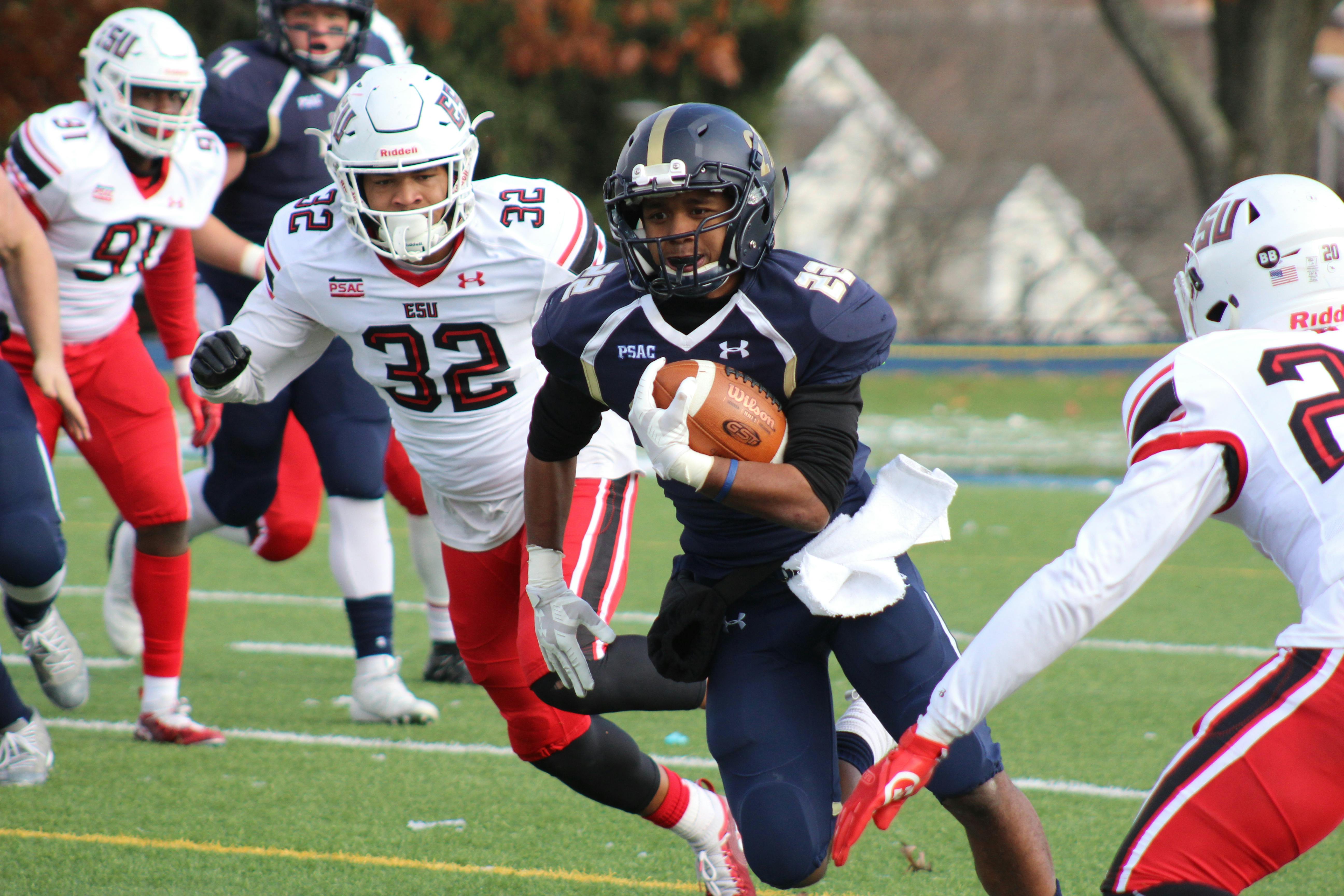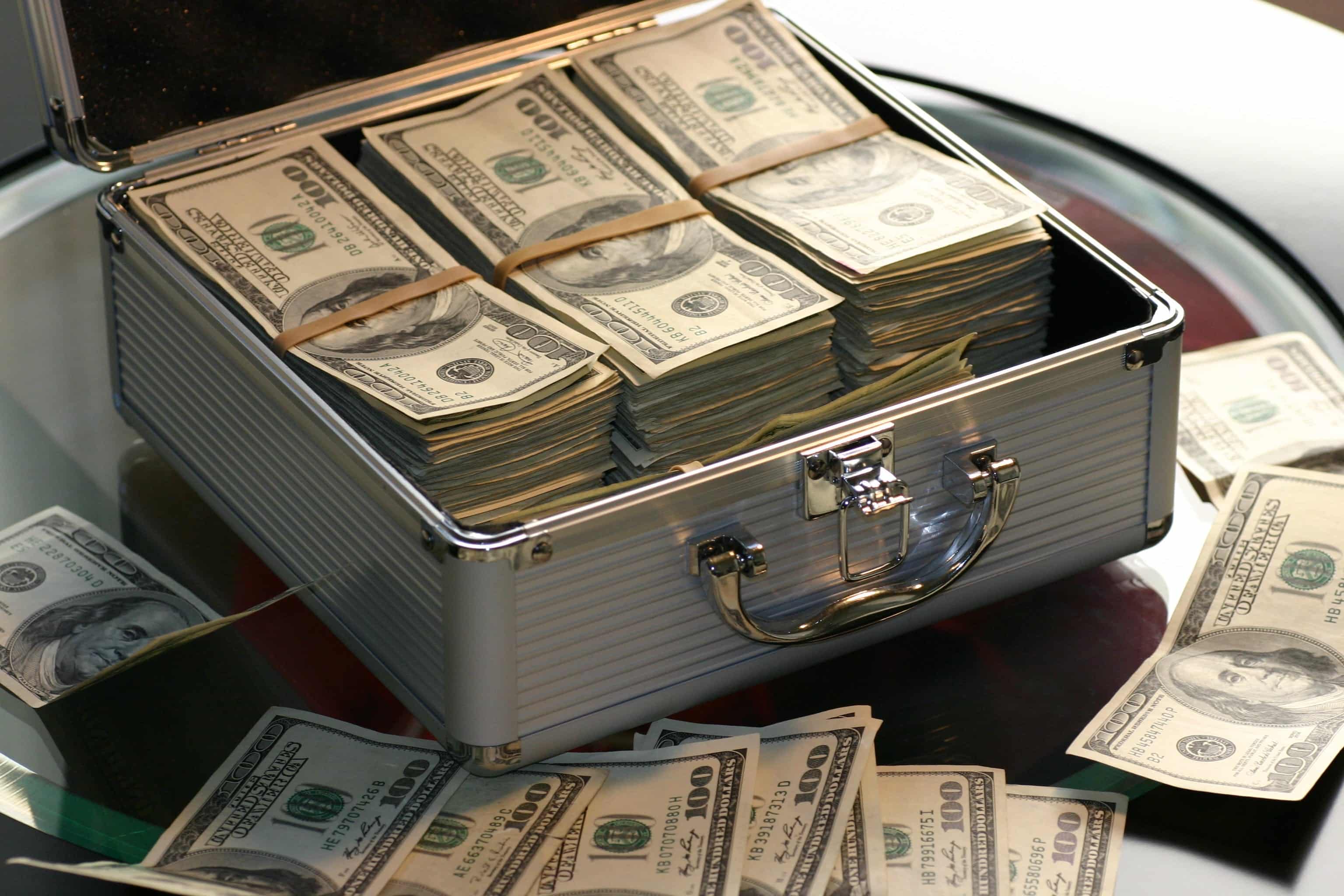
330+ American Slang Words (with a Quiz)
American slang can make things tricky for English learners and even native speakers.
It’s everyday language in the United States, but you don’t always learn it in class.
Here’s a rundown on some of the most common American slang so you can avoid confusing situations in American English conversations.
Read on and prepare to have fun with this American slang!
Contents
- Most Common American Slang Words
- Most Popular American Slang Phrases
- Top Region-specific American Slang
- American Slang About Love, Relationships and Sex
- American Slang About Partying and Having Fun
- American Slang About School and Studying
- American Slang About Work and Careers
- American Slang About Sports
- American Slang About Money and Finance
- American Slang About Food and Dining
- Tech and Internet American Slang
- Resources for Learning American Slang Words and Phrases
- FAQs About American Slang
- American Slang Quiz: Test Yourself!
Download: This blog post is available as a convenient and portable PDF that you can take anywhere. Click here to get a copy. (Download)
Most Common American Slang Words
1. Adulting
Word type: Verb
Lots of modern slang comes from nouns turned into verbs. To adult is just one of them.
In general, it means meeting social expectations of adult behavior. If you’re adulting, you might be doing something like washing the dishes, filling out tax forms or getting up early to exercise before work.
It’s often used in a joking or mildly self-deprecating (self-mocking) way by frustrated Millennials.
“Hey, want to go see a movie with us tomorrow?”
“Sorry, I’ll be too busy adulting. I picked up an extra shift at work.”
2. Amped
Word type: Adjective
If you’re amped about something, you’re super excited or you can’t wait for something to happen.
It can also mean you’re really determined and you want something to happen. With this meaning, you can also replace amped with pumped. In other words, you’re full of adrenaline!
“I’m amped to see Beyoncé live!”
3. Awesome
Word type: Adjective
Awesome is a popular slang word in American English and all over the world. You’ll hear everyone from the young to old saying it.
When you use the word awesome, you’re expressing that you think something is wonderful or amazing. It can be used in a sentence or it could be used in a one-word reply.
“I thought ‘The Wolf of Wall Street’ was awesome! I loved it!”
4. Babe
Word type: Noun
If you refer to someone as a babe, it means that you think they’re hot and attractive. Be careful, though—you should only use this with someone you know well or when speaking to another person and not the babe, because they may get offended.
“Oh man, Justin Timberlake is such a babe.”
5. Bae
Word type: Noun/adjective
Bae is like babe, only newer. Both most likely come from the word baby.
Unlike the other words, bae can also be used to describe anything hot, admired or great.
“Bae’s taking me out for a steak dinner tonight.”
“Aww, that’s so bae.”
Word type: Noun (banger) and adjective (bangin’)
In American slang, a banger is an energetic song that makes you want to dance.
Bangin’ (an accented way of saying banging) is used to describe a song that is great for dancing. Both can also refer to a really good song or artist, or anything impressive.
“This Taylor Swift song is bangin’!”
“I know! The whole album is full of bangers.”
7. Based
Word type: Adjective
Based is normally used to describe a literal or figurative foundation: a stone-based house, or an opinion based on your values.
If something is simply based, that means it’s well-founded or correct. You can use the word by itself to express approval or agreement.
“The new school uniform policy is stupid. Who cares if you can see a girl’s knees anymore?”
“Based.”
8. Basic
Word type: Adjective
The word basic has several meanings, including fundamental, essential and alkaline (the opposite of acidic).
In slang form, it’s an insult that means something or someone is too conventional or mainstream and therefore ordinary and boring. The term originated from hip-hop culture.
“Tiffany is so basic. She likes anything she hears on pop radio.”
9. Beat
Word type: Adjective
In normal terms, beat would be used as a verb meaning to win (e.g. Liverpool beat Manchester United) or to hit (e.g. “Marko, stop beating your brother”). However, it means something completely different in slang or everyday English. If you hear your friend saying I’m beat, it means he or she is very tired or exhausted.
“I’m beat after helping my dad in the yard all morning.”
10. Bet
Word type: Interjection
This is one of many ways to agree with someone, like okay, sure and totally.
It’s likely a shortening of the phrase you bet, which itself is related to a number of phrases with the formula you can bet [something] on it.
“See you at 2:00 pm for the movie?”
“Bet!”
11. Bounce
Word type: Verb
To bounce means to leave a place quickly. It’s used in situations where someone wants to leave a party or event, or to end a conversation with someone else.
“This party is getting too wild for me. I’m gonna bounce.”
12. Bougie
Word type: Adjective
Also spelled boujie, boujee, boojie and bourgie. This word comes from the French bourgeois, which simply refers to members of the middle class.
In American slang, however, bougie means snobbish or pretentious for the sake of appearing wealthy.
“Steve is always buying bougie stuff he doesn’t need.”
13. Bummer
Word type: Noun
If something was disappointing or unfulfilling, then it was a total bummer. You can also use this slang as an interjection (e.g. Bummer!) to mean something like, “That stinks!”
“The concert last night was such a bummer.”
14. Bussin’
Word type: Adjective
This term—like many American slang words—has origins in the African-American community. It used to mean dancing (possibly from the phrase to bust a move).
Nowadays, it means amazing or delicious, used especially for great food. It may come from bursting, as in it’s bursting with flavor. It could also have a sexual connotation, as in “it’s making me burst with excitement.”
“I’ve heard the tacos at the new Mexican restaurant are bussin’!”
15. Bust / Busted
Word type: Verb (bust) and adjective (busted)
If you bust someone, you’ve caught them doing something they shouldn’t be doing/saying/hiding. “The police bust people every day” translates to “they catch all the bad guys and charge them or put them in prison.”
“My brother got busted for cheating on his exams.”
Busted also means the same thing as broken. In gamer slang, something that is busted or broken is so good it gives whoever has it an unfair advantage. In other words, it breaks the game.
“The ‘Magic: The Gathering’ card Yawgmoth’s Will is seriously busted. It got banned for good reason.”
16. Cancel
Word type: Verb
You may know this word already in the context of canceling (ending) a subscription to a service.
When it comes to popular media or celebrities, to cancel them means to reject them or no longer support them. This may be done in response to a controversial or offensive statement or action.
“Cancel culture” itself is a controversial subject.
“I’m done with J.K. Rowling after her comments about transgender people. I love ‘Harry Potter’, but I have to cancel her.”
17. Clapback
Word type: Noun
A clapback is a quick, sharp response to an insult or criticism. Like a comeback, but especially witty or cutting.
“I have the perfect clapback to those jerks online, but I don’t want to feed the trolls.”
18. Cool
Word type: Adjective
Cool, like awesome, means great or fantastic. It also shows that you’re okay with an idea. Be careful: the normal meaning of cool is a little cold, so you have to listen to it in context to understand what’s being said.
“I like your new boyfriend. He seems like a cool guy!” (He seems like a nice guy).
19. Corny
Word type: Adjective
Corny is used to describe something that is overly emotional or cliché (unoriginal) to the point that it’s funny or annoying.
“John told me that my smile is as bright as the sun.”
“Wow, that is so corny.”
20. Cringe
Word type: Adjective/noun
This is a shortening of cringeworthy. Variants include cringy or cringey, but you will often hear it as just cringe.
In any form, it describes something that’s embarrassing or uncomfortable to experience, such as Internet memes that are out of date or just aren’t based.
“I can’t believe you still have your old stories online.”
“I know, reading them now is pure cringe, but I still love them anyway.”
21. Dank
Word type: Adjective
Many slang words have a negative meaning in standard use, but a positive meaning in slang use. Dank usually means damp, musty and sometimes cold, like an old cellar.
As slang, though, it describes something high quality or very good. It is used especially of marijuana, also known as “weed.”
“This is some dank weed, bro!”
Word type: Adjective (dead) and verb (died)
Dead or died in slang means that you have an extreme reaction to something, usually because it’s very funny or impressive. The situation is so overwhelming that it metaphorically kills you:
“I just saw Brad Pitt’s new photo, I died.”
23. Ditch
Word type: Verb
A ditch is a long, narrow trench in the ground, usually for carrying extra water away from a road or yard.
To ditch is to abruptly get rid of something or to escape. You can imagine throwing something you don’t want into a ditch or jumping into one yourself.
“I noticed a car following me, but I ditched them.”
24. Dope
Word type: Adjective/verb/noun
Saying something is dope is another way to say it’s cool, great or awesome.
“This campsite is dope! There’s a lake and everything!”
Calling someone a dope is a teasing, mildly rude way to say they’re stupid.
“I can’t believe I forgot to bring suntan lotion. I’m such a dope.”
Dope can also refer to drugs, illegal or legal. To dope or dope up is to take drugs or apply drugs to something.
“Ugh, the mosquitoes here are eating me alive.”
“Good thing I brought bug spray. Dope up!”
25. Down
Word type: Adjective
When you’re down for something, that means you’re able and willing to do it. This slang is commonly used among friends who are figuring out what to do.
“What should we do on Saturday?”
“I’m down for bowling. We haven’t gone in a while.”
26. Drip
Word type: Noun
A drip is usually a very small flow of water, just one drop at a time. After it rains, you’ll see drips of water falling from the trees.
This word has an older slang meaning and a newer one. The older meaning is a person who’s no fun: like a leaky roof, they put a damper on everything.
“Oh, don’t invite Joan. She’s such a drip.”
The newer meaning is much more positive. If you have drip or you’re dripping, it means you’re a very fashionable, cool person. You have so much style it positively drips off of you.
“Joan’s new outfit has amazing drip! She has great taste.”
27. Dude
Word type: Noun
Dude is used in casual conversations. It is also something that surfers, skaters or hippies use very frequently when talking to one another:
“Dude, you should have seen the look on your face when we surprised you!
There’s even a popular movie that’s titled “Dude, Where’s My Car?”
Another similar term would be bruh:
“Bruh, you won’t believe what just happened to me.”
28. Dunno
Word type: Contraction
Simply speaking, dunno means I don’t know. It’s a quicker way of saying it, and it’s very popular among young people.
Do be careful who you say this to. If you say it to someone in a higher position than you, it could come across as rude. To play it safe, just use it around people your own age or younger.
“What are you doing for spring break?”
“Dunno. I was thinking of traveling to Mexico again, but I’m not sure.”
29. Epic fail
Word type: Noun
The word epic means huge and you already know what the word fail means. Put the two words together and that’s what it is: a big failure or complete disaster.
You’d use this noun when something hasn’t gone the right way. It’s used to exaggerate the idea of failing or doing something wrong.
“Wow, the school basketball team lost the game by 30 points.”
“Yeah, epic fail!”
30. Ex
Word type: Noun
Usually, if you hear a friend referring to their ex, they’re referring to their old boyfriend or girlfriend who they no longer date.
But if you put it with another noun, it can mean something that used to be. For example, ex-boss means your boss from before, who is no longer your boss.
“My ex always sends me messages on Facebook. It’s really annoying!”
31. Extra
Word type: Adjective
You might be familiar with this word’s normal meaning of additional, as in “an extra helping of food.”
The slang form takes it to another level, meaning too much. It often refers to someone who’s being dramatic (theatrical) for attention.
“Barry is so extra. He always wears weird clothes, and his hair is a different color every week.”
32. Facepalm
Word type: Noun
A facepalm is the action of striking your forehead with your palm. It is used to express frustration or disbelief, possibly at something that is cringe.
You can say the word out loud to mean the same thing, though that is a little unusual. It is more often used in online chat, set with asterisks to indicate the action.
“How was your date?”
“Turns out he believes the Earth is flat. *facepalm*“
33. Feels
Word type: Noun
This is simply an abbreviation of feelings. Use it when you want to talk about strong or complex emotions in a lighthearted way.
“The season finale hit me right in the feels. I actually cried.”
“It gave me all the feels. It was so good.”
34. Finesse
Word type: Verb
Normally, finesse is a noun that means skill or artfulness.
As slang, it means to get something you want with skill or charm. Often, it also suggests you may have cheated or been dishonest.
“I thought you said you lost your car keys. How did you get here?”
“I finessed a ride from my buddy. It’s cool.”
35. Fire
Word type: Adjective
As slang, fire is used to describe something really good, cool or impressive. It can refer to anything from music to a person’s outfit to a situation.
“That concert was fire! I can’t believe how good the band was.”
You can also say something or someone is on fire if they’re doing an amazing job.
“The drummer was totally on fire. Her hands never stopped moving!”
36. Flake / Flaky / To flake on
Word type: Noun (flake), adjective (flaky) and verb (to flake on)
Snowflakes and coconut flakes are nice things, but a human flake is not. Use the slang flake to describe an unreliable person who doesn’t follow through on their promises.
You can also describe the same person as flaky or say that they flake on whatever they’re supposed to do (ex. “She’s definitely going to flake on our meeting”).
“Looks like we’re all here, except for Darren.”
“Even after he promised he would come. What a flake!”
37. Flex
Word type: Verb/noun
To flex normally means to bend. For example, a weightlifter might flex his arm to show off his huge biceps.
The slang term is related to this, since it means to show off, brag or boast. To flex on someone is to show that your achievements or skills are superior to theirs (or so you hope).
As a noun, a flex is any act meant to prove how cool you are.
“I’ve been collecting garden gnomes since 2010. I have some really rare pieces.”
“That’s a weird flex, but okay.”
38. FOMO
Word type: Acronym/noun
FOMO stands for fear of missing out. It’s the feeling you get when your friends are all talking about their awesome summer vacation plans and you don’t know if you’ll be able to go anywhere at all.
“I finally started watching Marvel movies. The FOMO was getting to me.”
39. Freebie
Word type: Noun
A freebie is anything that you get at no cost. You’ll probably find it useful in stores or shops that generously offer free little gifts or samples.
“Hey, where did you get that lipstick?”
“I got it as a freebie after buying perfume from the mall.”
Word type: Noun (gas) and adjective (gassed)
In American English, gas refers to gasoline (or petrol). As slang, it can mean any type of power or energy.
“I can’t work out any more today. I’m all out of gas.”
If something is gassed, it’s full of energy. It can describe a person who’s really excited or happy.
“After I won that race, I was so gassed! I felt like I could take on the world.”
Word type: Noun
Calling someone a geek or a nerd is referring to a person in a negative way because they like to spend lots of time on a particular interest, such as reading or spending time online. Geek and nerd are more likely to be used as insults when the person’s interest is considered unusual.
But if people share a particular interest, they can call each other geek or nerd in a friendly way.
“I’m so glad I found the anime club. It’s great to hang out with other geeks like me.”
“A bunch of us are book nerds, too!”
42. Glow-up
Word type: Noun
A glow-up is a positive transformation or improvement, often in reference to a person’s appearance. The meaning is similar to the older slang term, makeover.
“I’m ready to start dating again, but I need a full glow-up. Clothes, hair, makeup—everything.”
“Awesome! Makeover party on Saturday!”
43. GOAT
Word type: Acronym/noun
If you ever hear someone say another person is the GOAT, don’t worry, they’re not talking about a barnyard animal. They’re saying that person is the greatest of all time. It’s a big compliment!
“I love Docm77’s videos on YouTube. He really is the GOAT!”
44. Gucci
Word type: Adjective
Gucci is a luxury fashion brand known particularly for their handbags. Owning a Gucci bag is seen as a symbol of wealth and status.
As slang, the word Gucci means fashionable, high quality or fancy. You can use it to describe a person or their clothes or accessories.
“That watch looks so Gucci! Can you believe somebody gave something like that to Goodwill?”
45. High
Word type: Adjective/noun
High normally means to be in a position at a great vertical distance. For example, you could say a mountain is too high, so you can’t make it to the top.
When used as slang, though, high refers to the positive physical feeling that people experience when they take illegal drugs:
“I’m so high I can’t even think clearly.”
It can also mean being overjoyed (extremely happy) with something:
“I’m on a pizza-high right now.”
46. Hype
Word type: Verb/noun/adjective
The most standard meaning of to hype or hype up something is to promote it. The goal of hyping something up is to create excitement about it. If the product does not live up to the excitement, it is over-hyped.
Hype can refer to the excitement that is created by a promotional campaign.
“Don’t believe the hype about Amazon’s ‘The Rings of Power’. They spent too much on promotion and not enough on good writing.”
“Over-hyping at its finest.”
Hype can also refer to a situation that simply is exciting or high-energy.
“This party is hype!”
47. In
Word type: Adjective
In a slang context, in means to be in fashion or trending at the moment. Things that are in at the moment may not be in in a month—why? Because trends always change!
“Jordan, why do you keep listening to that music? It’s awful!”
“Mom, you don’t know anything. It’s totally in right now!”
48. Killer
Word type: Noun/adjective
As a slang word in a negative context, a killer means something exhausting and tough.
“That exam was a killer. I need a break.”
Positively, it can be used to describe something great, amazing and impressive.
“Wow, that was a killer burger!”
You can turn this into a verb with the phrase killin’ it or killed it:
“I was killin’ it tonight at our basketball game.”
49. Legit
Word type: Adjective
This is an abbreviation of legitimate, meaning lawful, valid or within standards.
Legit comes from the theater world. Legitimate drama meant a well-written, relatable play. Nowadays, you can use legit to describe anything valid, authentic or correct.
“I’m sorry I can’t come to your party. I have a sore throat and I don’t want to get anyone sick.”
“That’s legit. Feel better soon!”
50. Lit
Word type: Adjective
Lit can describe either an exciting, fun situation or someone who has had too much to drink.
“This club is lit!”
“I know. I’m feeling a little lit, myself!”
51. Looker
Word type: Noun
If somebody says that you’re a looker, you should definitely be flattered—they are paying you a compliment and saying that they think you’re good-looking. They’ll probably never say it to your face, but you might hear it from someone else.
“That Marni girl is a real looker.”
52. Loser
Word type: Noun
If your friend says a person is a loser, it doesn’t mean they lost a game or a competition. It means that your friend doesn’t like them because of their behavior.
“Ray is such a loser for breaking up with Rebecca.”
Word type: Adverb
This slang is close to its standard meaning of restrained or having less intensity.
As an adverb, it’s used to talk about something you have feelings about, but in an understated way; you don’t want to make a big deal of it.
“Pineapple on pizza is the worst.”
“I dunno, I low-key don’t hate it.”
The opposite, high-key, is not often used. It will be understood if you use it, though.
“I high-key need a vacation right now.”
54. Mood
Word type: Noun
A mood is an emotional state, like happiness or boredom. You can be in a good mood, a bad mood or a weird mood.
When somebody says “that’s a mood,” “big mood” or just the word by itself, it means they strongly relate to the way you feel. (See also: I feel you.)
“I just want to stay in bed and watch Netflix all day.”
“Mood.”
55. Nuts
Word type: Adjective
Someone who is nuts is crazy, and someone who is nuts about something is obsessed with that thing.
It is offensive to say that someone with a mental illness is nuts or crazy. However, the slang can be used in a playful or non-serious manner with friends.
“I’m going to go sky-diving in Hawaii this summer.”
“Are you nuts? You’re terrified of heights! You’re going to have a heart attack!”
56. Own
Word type: Verb
You can’t literally own (possess) a person. When gamers talk about owning someone, they mean defeating another player in a decisive victory. Getting owned can also mean getting humiliated in any situation.
“That boss owned me so hard I felt it in real life!”
In Internet slang, this is often spelled pwned. The letters P and O are next to each other on an English keyboard, so it’s easy to type one instead of the other by accident. People started doing it on purpose as an in-joke.
57. POG
Word type: Acronym/adjective
POG, also written pog, stands for play of the game. It comes from online gamer culture, where it’s used as a compliment to tell someone they made a great move, or play. In general use, it’s similar to sweet or awesome.
“You’ve activated my trap card. I win!”
“Pog!”
58. The receipts
Word type: Noun
A receipt is a written record that shows you have received (taken ownership of) money, goods or services.
If someone wants you to show them the receipts, they’re asking for proof of whatever claim you just made.
“Jackson can deny that he’s been spreading rumors about me, but I have the receipts.”
59. Ripped
Word type: Adjective
In standard English, ripped means torn.
If a person is ripped (usually men/guys, but not always) it means they have great muscles and bodies—probably because they work out a lot in the gym or are into sports.
“Dude, you’re so ripped! You must live in the gym.”
60. Salty
Word type: Adjective
It’s not just for describing food flavor. Salty is also used to describe an upset or bitter person. This slang became popularized by the Internet, so you’ll probably encounter it often in social media posts.
“Jessica got 98/100 on the test because she forgot to write her name. She’s so salty about it.”
61. Savage
Word type: Adjective
Normally, something described as savage is wild and vicious, like a tiger attacking its next meal.
It can also be used positively to describe a person who is fierce, fearless or intense.
“Those dudes who do parkour are savage. It’s like gravity doesn’t exist for them.”
62. Scumbag
Word type: Noun
This is a crude and very negative term for someone who is not likable. This could be because they’re dishonest, dirty, horrible, unpleasant, a loser or all of the above.
“That scumbag said he was gonna fix my phone, but he stole it!”
63. Selfie
Word type: Noun
A selfie is a photo you take of yourself, usually with a smartphone. (Taking a selfie with a regular camera and a mirror is cringe.) It doesn’t have to be just you; you can take a selfie with friends, too.
Love them or hate them, selfies are here to stay. You can thank Australia for giving us the word.
“I’m so excited to visit Chicago! Let’s get a selfie at the Bean!”
64. Shady
Word type: Adjective
When you think of someone suspicious, you might imagine them lurking in the shadows where they can’t be seen.
Shady means just that: suspicious. It can be used to describe a person, event or object that seems untrustworthy.
“Every time Jim sees me, he runs away. Why is he acting so shady?”
65. Ship
Word type: Noun/verb
No, we’re not talking about a boat. This is an abbreviation of relationship.
This slang comes from online fandom, especially fanfiction sites, where a ship refers to a romantic partnering of two (or more) fictional characters.
If you ship certain characters, you believe they are perfect for each other and should be together, whether they are together in the original story or not.
“Harry marries Ginny in the books, so that’s the one true ship.”
“I don’t care what anyone says. I’ll ship Harry and Hermione until I die.”
66. Shook
Word type: Adjective
Normally, shook is the simple past tense of to shake. Just to confuse you, to be shook in American slang means the same thing as to be shaken in the sense of shocked or stunned.
Slang often involves playing with the language and testing its limits, so don’t be too shook if you also see shooketh, with the archaic suffix -eth repurposed to signal an ironic tone.
“Did you hear that Kate and Donny broke up?”
“After all that fighting? I am shooketh.”
67. Sick
Word type: Adjective
If your buddy says that the party was sick, he’s saying he thought it was really cool, awesome or the best. In this case, it has a similar meaning to the word awesome.
You probably will only hear teenagers and college students saying this—oh, and maybe those Californian surfers!
“You missed a sick party last night!”
68. Simp
Word type: Verb/noun
To simp for someone is to be overly attentive or submissive to that person, usually a romantic interest.
If someone calls you a simp, they’re telling you in a rude way that they think you’ve given up your dignity for a person or cause that doesn’t deserve your devotion.
“Sandy changed her hair and started wearing skin-tight clothes all of a sudden. What’s up with her?”
“She’s totally simping for that troublemaker Danny. It won’t end well.”
69. Slay
Word type: Verb
If someone tells you to go slay, don’t pick up a knife! Instead of to kill, to slay here means to be amazing.
The term is used to describe a person or an outfit that looks fabulous. It can also describe someone who has done something especially impressive.
“Girl, your new dress slays!”
“Thanks! I really want to impress my date.”
70. Snack
Word type: Noun
If someone looks like a snack, they look good enough to eat. In other words, they’re hot!
As with babe above, be careful to use this only when talking to other people, since not everyone will like being called a snack.
“Chad looks like a real snack in his uniform.”
71. Snatched
Word type: Adjective
Having something snatched (quickly taken) from you is bad, but being described as snatched is good.
In this case, it means you’re attractive and your style is perfect.
“Have you seen Sarah lately? She looks amazing!”
“I know, right? Her edges are snatched and her outfit is on point.”
(Edges is a term born in the African-American community, referring to the small, soft hairs that grow at the boundary of the forehead. It can also mean one’s hairstyle in general.)
72. Stan
Word type: Noun/verb
A stan is a fan who is obsessed with the object of their fandom. To stan for something is to be a fan or supporter of it, perhaps excessively.
Like geek, this can be a bad thing to call someone else, but it can be used ironically or positively to describe yourself or people who share your interests.
This word comes from the name of a song by Eminem and Dido about a hyper-devoted fan named Stan.
“How can you still like ‘Game of Thrones’ after that ending?”
“What can I say? I stan for everything Westeros.”
73. Swag
Word type: Noun
Swag is used to describe someone who is cool or has a style that is sexy or cool:
“Have you seen Alex’s new hairstyle?”
“Yeah, that guy has swag.”
You can also say:
“I’ve got more swag than you do.”
74. Sure
Word type: Adjective/adverb
This means certain. If someone is sure about something, then you can trust them to be right—at least, most of the time!
“Was that his real hair?”
“No, I’m pretty sure it was a wig!”
Sure can also be used as an adverb to emphasize a point.
“That cheesecake sure is tasty!”
75. Sus
Word type: Adjective
Sus is an abbreviation of suspicious. Someone acting sus is probably untrustworthy and up to no good.
This slang usage was popularized by fans of the video game “Among Us,” in which some players are secretly impostors trying to sabotage and kill the rest.
“Caroline is sus. I saw her coming out of Engineering right before I walked in and found Jeff’s body.”
76. Sweet
Word type: Adjective
Sweet isn’t used only for desserts—you can also use it to convey just how amazing and fantastic something is to your friends!
“Hey, I just won a car!”
“Sweet!”
77. Swole
Word type: Adjective
Swole means to be extremely muscular. It’s a playful variation of the word swollen. You can think of it as meaning that you’ve obviously gained a lot of muscle because you’ve exercised a lot (especially weightlifting):
“It looks like Tom’s been hitting the gym hard.”
“Indeed, that workout made him swole.”
78. Thicc
Word type: Adjective
Calling someone (especially a woman) thicc is a compliment. It means she has a pleasantly curvy body, with larger than average breasts, thighs or buttocks.
However, not everyone wants to be complimented on their size—they may feel like you’re calling them fat. Also, thicc sounds exactly like thick, which can mean stupid. Be careful how you use this one!
“I love Beyoncé’s music. Doesn’t hurt that she’s thicc, too.”
79. Thirst / Thirsty / Thirst trap
Word type: Noun (thirst, thirst trap) and adjective (thirsty)
Feeling thirsty normally means you need to drink some water. In slang, thirst refers to sexual desire or a longing for romantic attention.
“Darrel keeps posting shirtless pictures of himself. It’s got me feeling thirsty.”
A thirst trap on social media is a sexy statement or image meant to attract comments, likes, etc. from thirsty viewers.
“He’s hot, but he’s a scumbag. Don’t fall for the thirst trap.”
Word type: Adverb
Totally means completely or entirely. It’s often used as an intensifier or to express agreement in casual speech. Totes is an abbreviation of totally that has become popular in our fast-paced world.
Be careful, though: these words have been overused and are sometimes a signal for sarcasm. Saying something is totally true or totes legit can mean the opposite, and you may sound insincere even if you’re being honest.
“I’m totes the best! You believe me, right?”
“Oh, totally.”
81. Vibes / Vibe check
Word type: Noun (vibes), verb/noun (vibe check)
Vibes (short for vibrations) are the overall energy or atmosphere of a person or a situation. If someone gives off good vibes, chances are they’re positive and friendly.
If you get bad vibes when you walk into a room, you might be sensing that your friends have just had an argument. In that case, you might ask for a vibe check to see if everything is okay now.
But you can also use it more forcefully to let someone know they’re behaving badly and should calm down. In that sense, a vibe check can refer to a metaphorical slap on the face.
“Hey, guys. Vibe check?”
“We’re cool, thanks. I just got vibe checked, but I deserved it.”
82. Whatever
Word type: Noun
Whatever is used to emphasize a lack of limitation on something.
“Eat whatever you like. It’s your birthday and I’ll pay!”
It can also be used as an exclamation to show that you don’t care about something or if you’re tired of something. If used correctly, it can be an awesome way to get people to stop bothering you!
“Look, I was right all along! That means I’m smarter than you!”
“Oh, whatever!”
83. Wheels
Word type: Noun
We know there are many things that have wheels—a car, a motorbike, a bike and even a wheelbarrow. But when somebody refers to their wheels, they are talking about their car.
“Nice wheels!”
“Thanks! I had it fixed up at the auto shop.”
84. Woke
Word type: Adjective
Be very careful with this word. It’s everywhere, but it comes loaded with political connotations. How you use it sends different signals to different people.
Originally, to be woke meant to be awake to the existence of racial prejudice and injustice in the world. In this sense, being woke is a good thing.
However, right-wing people use it with negative connotations when referring to a leftist political or social ideology they don’t agree with.
“I wish Hollywood would focus more on being entertaining, less on being woke.”
“I think it’s good to have more diversity in our media.”
85. Word
Word type: Interjection
In slang, word means that you agree. Instead of saying I agree you say word instead:
“This is the best pizza in town, isn’t it?”
“Word.”
86. YAAAAAAS
Word type: Interjection
This is used when you’re excited about something or you highly agree. You can say:
“Hey, I just got invited to this amazing rooftop party downtown. You interested?”
“YAAAAAAS I’m definitely going with you.”
There’s no word in the standard English dictionary like this, but it’s distantly related to yes.
87. Yeet
Word type: Verb
Yeet is a word with complex origins. It seems to have come from a couple of videos that got popular on Vine (now defunct). From there it spread across the Internet and into everyday use.
As a verb, it means to throw something at high speed. It’s often shouted when throwing something, or just as an exclamation of excitement.
“I’m gonna build a slingshot that can yeet a soda can into outer space!”
88. Hobnob — Socialize with people of an artificially higher status
89. Chill — Relax
90. Popo — Police
91. Fuzz — Police
92. Airhead — Silly/foolish person
93. Crash — Sleep/pass out
94. Dead — No one’s there (such as a bar or restaurant)
95. Spox — Spokesperson
96. A-Game — One’s best
97. Yuppie — Young urban professional, white-collar worker
98. Cray — Crazy
99. Poppin’ — Excellent
100. Drownin’ — Unfashionable
101. Yikes! — No way! It can’t be!
102. Finsta — Fake/Private Instagram account
103. Periodt. — End of discussion
104. Curve — Rejecting someone’s advances
105. Smol — Small/cute
106. Flakey — Indecisive
107. Hypebeast — Someone who only wants to be popular
108. Whip — Car
109. Jacked — Muscular
110. Chicken — Coward
111. Whiz — A smart person
112. Jonesing for — Really want something
113. Wack — Bad, not cool
114. Score — Get what you want
115. Flick — Movie
116. Wasted — Intoxicated
117. Booze — Alcohol
118. Wildin’ — Acting crazy
119. Crusty — Unclean
120. Frontin’ — Pretending to be skilled to impress others
121. Dead-Ass — Serious about something
122. Tight — Stylish, cool
Most Popular American Slang Phrases
123. AF
Word type: Adverb
AF (or af) stands for as f*** (an offensive word). Using the acronym is less rude than using the full words, but this is for casual situations only.
It works with any adjective as an intensifier.
“The new ‘Call of Duty’ game is sick af.”
124. Blow off steam
Word type: Verb
Have you ever used a pressure cooker? To be safe, you have to release the pressure before you open it, and releasing the valve lets out a lot of steam.
In the same way, when a person blows off steam, they are releasing anger, anxiety or another strong emotion.
“I had a hard day at work. I’m going for a run to blow off some steam.”
125. Break a leg
Word type: Phrase
This silly slang is just a fun way to wish someone good luck. It’s often said before performances by actors and musicians.
“Today’s my first time performing in front of a live audience!”
“I’ll be in the front row to watch you. Break a leg!”
126. Bye, Felicia
Word type: Phrase
This is a negative phrase used to dismiss someone when you want them to go away. It comes from the 1995 comedy film “Friday.”
“If I could just get you to read this pamphlet—”
“I already told you no. Bye, Felicia!”
127. Can I get an amen?
Word type: Phrase
Can I get an amen? doesn’t mean that you are really asking for a spiritual amen from the person you are talking to. This phrase is not used in formal conversations.
It means that you are asking people to relate to what you’re saying or get them to agree with you:
“Waiting in line for hours just to get a drink is crazy, can I get an amen?”
Word type: Verb (to cap) and phrase (no cap)
The verb to cap has several meanings, but the newest slang meaning is to lie.
No cap means no lie, or I’m telling the truth.
“The new restaurant has an aquarium with live sharks in it!”
“You capping?”
“No cap! I saw with my own eyes.”
129. To check out
Word type: Verb
This can be used to say look at or listen to, typically at something unusual or interesting.
“Check out that guy over there!”
130. To chill out
Word type: Verb
Everybody loves to chill out, but what does it mean? It simply means to relax.
It can be used with or without the word out, and if you’re speaking with an American English speaker, they’ll definitely understand.
But if someone tells you to chill out, it’s not polite. It means that they think you’re overreacting to a situation or getting stressed about silly things.
“Hey Tommy, what are you guys doing?”
“We’re just chilling (out). Do you want to come over?”
“Sure. I’m stressing about the math test. I need to chill out a bit.”
131. To do a solid
Word type: Verb
Doing a solid means you’re carrying out a favor for someone. In popular usage, it’s often implied (suggested) that the favor is suspicious or illegal in some way.
“Hey, can you do me a solid and lend me $500? I’ll pay you back, I swear.”
132. To drop by / To drop in
Word type: Verb
This is to pay a short, unscheduled visit to someone.
If someone tells you that you can “drop in anytime,” it’s a friendly way of saying that you can come over whenever you would like to.
“I’m really sorry, but I’ve still got those books I borrowed from you a month ago!”
“Oh, no worries. Why don’t you drop in after work and bring the books then?”
133. To dump [somebody]
Word type: Verb
If you dump your boyfriend or girlfriend, it means you suddenly end a romantic relationship with them.
And if you’re dumped, it means that somebody doesn’t want to date you anymore.
“What’s wrong with Amy? She looked sad all day.”
“Didn’t you hear? Alex dumped her last night!”
134. For real
Word type: Phrase
Roughly, this means it’s true. It can also be used for emphasis or as a question.
“I just got into Harvard!”
“For real?”
“For real!”
135. To ghost [someone]
Word type: Verb
Another noun-turned-verb, to ghost someone is to stop responding to their emails, texts and calls without warning. It’s not a nice thing to do.
“Mike hasn’t replied to my texts in over a month. The jerk ghosted me.”
136. Hang on
Word type: Phrase
This phrase is more commonly used as a way of saying wait a minute.
“Are you ready to go yet?”
“Hang on, I just need to save my game!”
137. To hang out
Word type: Verb
If someone asks you where you usually hang out, they want to know in which place you prefer to be when you have free time.
And if your friend asks you if you want to hang out with them, they’re asking you if you’re free and want to spend some time together.
And what if you ask your friend what they’re doing and they just answer hanging out? It means that they are free and not doing anything special.
“Hey, it’s great to see you again. We should hang out sometime.”
138. To have a blast
Word type: Verb
The English word blast normally refers to a big explosion. It’s a word that we might see or hear in the news that concerns bombs.
But if you use this among your friends, it’s a lot more positive. It means that something is great or you had an amazing and fun time.
“Thanks for inviting me to your party last night. I had a blast.”
139. To have a crush [on somebody]
Word type: Verb
To have a crush on somebody is a great feeling. It means that you’re attracted to somebody and would like them to be more than just your friend.
Instead of saying have a crush, you can also say crushing on—it means the same thing, but it’s usually used among the younger generation and teenagers.
“Oooh, you’re so crushing on Michael right now!”
140. To be hooked [on something]
Word type: Adjective
If you’re hooked on something or just hooked, it means that you’re addicted to something and you can’t get enough.
You can be hooked on chocolate, basketball, a new TV show or something more dangerous like smoking (which is not cool, by the way).
“I loved the new sitcom with Seth Rogen. I’m hooked already!”
141. I can’t even
Word type: Phrase
This is a joking way to say you’re overwhelmed. Usually, you’d finish the phrase I can’t even with something like handle this or process this, but if everything is just too much, you can’t!
“This pasta is so good, I can’t even!”
142. I feel you
Word type: Phrase
No hands or touching are involved with this slang. When you say I feel you to someone, it means you understand them and what they’re going through.
It’s usually used when the person you’re talking to is having a hard time or is upset about something.
“Ugh, I’m so nervous about my dentist appointment.”
“I feel you. The dentist scares me more than any other doctor.”
143. Living rent-free in my head
Word type: Phrase
If you let someone share your house or apartment without paying rent, you probably like them a lot.
If something is living rent-free in your head, it means you’ve become fascinated with it and can’t stop thinking about it.
“The title track of this new album is living rent-free in my head.”
144. My bad
Word type: Phrase
This slang is a casual way to say I’m sorry. However, keep in mind that it can also seem insincere or teasing in certain contexts.
It can work fine for minor or even laughable mistakes that aren’t worth much trouble, but it may not be the best thing to say for more serious errors.
“Hey! You spilled your drink on me!”
“Oh, my bad. Here, take my napkin.”
145. No sweat
Word type: Phrase
When something isn’t a problem or doesn’t cause any difficulties, then it’s no sweat.
Whether it’s doing a favor for someone or having to deal with a little trouble, use this slang to say the matter is nothing worth sweating about.
“I’m sorry, but can you carry this box for me?”
“No sweat. I can even carry more for you if you’d like.”
146. No worries
Word type: Phrase
This is a bit of Australian slang that has made its way into American English.
When someone thanks you or apologizes to you, you can respond with no worries. That way, you’re letting them know you feel good about the situation, so they don’t need to be concerned.
“Thank you so much for coming. I know it’s a long drive.”
“No worries. I enjoyed the scenery.”
147. On fleek
Word type: Adjective
On fleek means perfect or flawless. It’s used to describe someone’s hair, makeup or clothes.
This phrase was coined on Vine by a girl named Kayla Lewis and astoundingly went viral from there. The word fleek existed earlier.
“Kayla’s eyebrows are on fleek!”
148. On point
Word type: Adjective
When something is exactly right or perfect, you can say it’s on point.
“How are you beating me so hard?”
“My skills are on point today!”
149. To pig out
Word type: Verb
We all know what pigs are best at doing: eating! For a person to pig out means they’re acting just like the animal—eating food quickly and passionately.
It’s the perfect slang to use whenever a hungry person and a lot of food are involved together.
“I can’t wait to go to the new buffet restaurant. I’m starving and ready to pig out!”
150. To ride shotgun
Word type: Verb
Riding shotgun sounds strange, but all it means is that you’re riding in the passenger seat of a car, right next to the driver.
This slang can be explained with a bit of history: Back when horse-drawn coach vehicles were used, it was common for a bodyguard with a shotgun to sit next to the driver as protection.
Nowadays, riding shotgun is typically considered a privilege. When a group of people is being offered a ride in someone’s car, you can expect someone to shout “I call shotgun!” to claim the passenger seat before everyone else.
“My back seats are a bit dirty. You can ride shotgun instead.”
151. Rip-off / To rip off
Word type: Noun (rip-off) and verb (to rip off)
If you find a simple t-shirt and the price tag says $80, you’d be shocked, right? That t-shirt is a complete rip-off, which means that it is way too expensive for what it is.
And if a person rips you off, they’re cheating you out of money and charging you a lot more than you should be paying. For example, tourists often get ripped off by locals because the locals want to make money and the tourists have no idea what the item is really worth.
“How much did you buy your wheels for, bro?”
“$2000!”
“Dude, you were so ripped off. This car’s worth only half of that!”
152. To send
Word type: Verb
It sends me is shorthand to say that something like music or art makes you feel rapture, humor or delight.
Though the expression has become popular with Gen Z, it actually comes from 1930s jazz culture.
“What’s your favorite book?”
“‘The Lord of the Rings.’ Good prose sends me.”
153. To slap
Word type: Verb
In standard usage, to slap something is to strike it with an open hand. It usually makes a loud noise.
If a song slaps, that means it’s awesome. Use it when you hear something with a great beat that makes you want to dance.
“Unpopular opinion: disco music totally slaps.”
154. To sleep on [something]
Word type: Phrase
This expression has two meanings. The first is to take time to think about something before making a decision.
“Which house will you buy?”
“I’m not sure yet. I’ll sleep on it and decide tomorrow.”
The second, newer meaning is to ignore or dismiss the value of something, letting it pass you by.
“Chicago-style pizza is the best.”
“No, New York–style is.”
“Dude, everyone is sleeping on Detroit-style!”
155. Spill the tea
Word type: Phrase
While it may have started out as New York local slang, this phrase has gained wider popularity lately.
Tea here is a euphemism (a more-polite term) for gossip, and spilling the tea means sharing gossip.
“I’ve been hearing some scandalous rumors about Nicole.”
“I must know everything. Come on, spill the tea!”
156. The struggle is real
Word type: Phrase
Similar to I feel you, this phrase is used to express empathy when someone is going through a hard time. It tells them you have been through something similar and can relate.
“I’ve been working so hard, but I still can’t seem to make ends meet.”
“The struggle is real. They keep raising the rent, so what are you supposed to do?”
157. To throw shade
Word type: Verb
Throwing shade is a term that means someone is making subtle, often sarcastic comments that are intended to be insulting or critical. It’s often used to describe someone who’s being passive-aggressive or who’s trying to make someone else feel bad without being too obvious about it.
“Did you hear what she said about your new haircut? She was totally throwing shade!”
158. Touch grass
Word type: Phrase
It’s claimed in some holistic and spiritual practices that walking barefoot on the grass connects you to the earth and is healing for the mind and body.
If someone tells you to touch grass, they may think you’re spending too much time indoors and need to go outside and experience nature. They may also think you’ve lost touch with reality and need to gain a better understanding of the world.
“I swear, the moon is made of cheese and NASA is covering it up.”
“I think you’ve been spending too much time on conspiracy websites. Go touch grass, buddy.”
Word type: Adjective (turnt up) and verb (turn down)
Turnt is an accented pronunciation of turned. (Especially in an African-American accent.) Both turnt up and just turnt can mean intoxicated, excited or acting wild.
“I got turnt up with a bunch of people at the club last night. Now I’m paying for it with a killer hangover.”
You may have heard the phrase turn down in the popular song “Turn Down for What” by DJ Snake and Lil Jon. Used as the opposite of to get turnt up, it means to calm your excitement or party less hard.
“Don’t tell me to turn down. It’s my wedding!”
160. To wrap up [something]
Word type: Verb
To wrap up means to finish something, usually an event like a meeting. You can also tell someone to wrap it up to urge them to hurry up and complete whatever they were doing.
“Hey, can we use this room? We’re having a meeting at 12:00 p.m.”
“Okay. We’re going to wrap up our study session in a few minutes.”
161. YOLO
Word type: Acronym, phrase
YOLO (or yolo) stands for you only live once. It’s a reminder that time is limited, so you should make the most of it. It is often used to justify spontaneous or risky behavior.
“I’m going to Costa Rica next week. My airline points were about to expire, so… YOLO!”
162. Have beef — Have a problem with/want to fight with someone
163. In the bag — A certainty (usually for something that you want, like in sports or a contest)
164. Once in a blue moon — Rarely
165. You bet — You’re welcome
166. I don’t buy that — I don’t believe you
167. No biggie — Not a problem
168. Show up — Go to, do better than someone
169. Get under one’s skin — Annoy
170. I’m game — I can join you/I will do it
171. I’m in — I can join you/I will do it
172. Loose cannon — Someone dangerously uncontrollable
173. Pass the buck — Make someone else responsible
174. Hit the road — Leave (to go somewhere)
175. Go Dutch — Every person pays for their own food/drinks
176. Hit the spot — (Said after food/drink) Really satisfying
177. Take a rain check — Do at a later time
178. In the zone — Performing as well as or better than one can
179. Tune out — Stop paying attention
180. Off the hook — Freed from blame
181. Off the chain — Really good
182. Fauci ouchie — COVID-19 vaccine.
183. Cancel culture — Online shaming/embarrassment of someone due to their views.
Top Region-specific American Slang

184. Bless up
Word type: Phrase
This phrase originated in Jamaica. It’s used as an expression of gratitude and well-wishing. It can also be used when greeting someone or parting from them.
“Thanks for your help on the project. Bless up!”
185. Bless your heart
Word type: Phrase
This is a common saying in Southern states and it can have two meanings. It can mean the speaker is being friendly and wishing you well for doing something nice.
However, more often, it’s used as an insult toward a person who acts foolishly.
If someone ever says this phrase to you, think first if you may have done something silly before accepting the “compliment.”
“I have $100. The steak is $20 apiece. Wow, so I can get six steaks!”
“Bless your heart. You might want to check your math again.”
186. Brick
Word type: Adjective
In this unique example of New York slang, brick means very cold. It’s the perfect word to use during the winter season when stepping outside is enough to make you shiver!
“Don’t forget to take your coat! It’s brick outside.”
187. Catawampus
Word type: Adjective
Also spelled cattywampus. This funny slang is used in midland and Southern states to describe something that’s crooked or diagonal. It can also be used when something isn’t going the way it should.
“A car smashed into the poor stop sign and it’s all catawampus now.”
Word type: verb (finna)
Fixin’ is an accented way of saying the word fixing. When you’re fixin’ to do something, that means you’re getting ready to or are planning to do it. This expression is used often in the South.
In recent times, it’s also contracted to finna.
“I’m fixin’ to finish my work early so I can get to the grand opening on time!”
189. Hella
Word type: Adverb
Possibly a contraction of hell of a (also written helluva), hella is slang used in California.
Like the New York slang mad and New England wicked, hella also means very or extremely. Sometimes, it can also mean a lot of.
“Let’s eat here. The steak special is hella delicious.”
190. Janky
Word type: Adjective
Used commonly in Northeastern states like New Hampshire, janky is slang for describing items that are very bad quality.
It can also be used for people who have unlikable or strange qualities.
“That bike looks so janky. It might break as soon as you sit on it.”
191. Mad
Word type: Adverb
No, you aren’t saying you’re angry or frustrated. You’re not insane, either—that’s what mad means in the U.K.
In New York, mad is a common slang word that means many or very.
“How about watching that new comedy film? I heard it’s mad funny.”
192. Ope
Word type: Interjection
When someone bumps into you by accident, you’d probably expect to hear oops or whoops, right?
Well, in Midwestern states, you’ll probably hear the word ope instead. It means the same thing!
“Ope! Sorry I nearly hit you there, Hank.”
“No sweat. Just be more careful.”
193. Rad
Word type: Adjective
Popular in California, rad is slang that means cool or awesome. It’s short for the word radical.
If you’ve ever watched movies that feature laidback Californians or surfers with long hair, then you may have heard this slang. It can sound a bit dated and cheesy in some contexts, though.
“The party last night was totally rad. The food and music were great.”
194. Wicked
Word type: Adverb
Wicked normally means bad or evil. But as a slang used often in New England states, wicked means very or excellent.
It works a lot like the slang mad in that it usually pairs up with an adjective. This slang is also used commonly in the U.K., where it has a similar positive meaning.
“Have you heard? Thomas is going to college with a full scholarship!”
“Of course, he would! He’s wicked smart.”
195. Y’all
Word type: Contraction
In southern states like Texas, you’ll probably hear a lot of folks saying y’all instead of you all when they’re talking to a group of people.
While the slang is most popular in the south, it’s also used all around America as a casual and friendly way to address others.
“Let’s go to bed now so we can wake up early tomorrow.”
“Sounds good to me. See y’all in the morning.”
196. Are you down? — Want to do it/join us? (California)
197. Yeah no — No (California)
198. Gnarly — Good or bad (depends on the context) (California)
199. Stoked — Excited (California)
200. Outta pocket — Inappropriate (California)
201. Might could — Maybe (South)
202. Acere — Pal, friend, buddy (Florida)
203. Vibin’ — Relaxing (Florida)
204. Parked in goofy — When you park your car in the further away parking lot (Florida)
205. Grindz — Food (Hawaii)
206. Shoots! — O.K.!, Understood! (Hawaii)
To learn some more New York slang, see this post:
New York City Slang: Over 120 Slang Words to Speak Like a Native New Yorker | FluentU English Learner Blog
New York City slang is in a world of its own! Even if you’re learning English slang, the slang words and expressions used in NYC are unique to the city. Learn about the…
American Slang About Love, Relationships and Sex

207. Hook up — To meet or begin a romantic or sexual relationship
208. Cuffing season — The colder months when people desire to be in a relationship
209. Friends with benefits — A relationship where friends engage in sexual activity without a commitment
210. Booty call — A late-night request for a sexual encounter
211. Make a move — To take action or initiate romantic interest
212. Hit on — To flirt or express romantic interest in someone
213. Third base — In a sexual context, refers to manual or oral stimulation
214. Get it on — To engage in sexual activity
215. Making whoopee — A humorous euphemism for engaging in sexual activity
216. Ship (Short for Relationship) — To endorse or support a romantic pairing.
217. Wingman — A friend who helps someone attract or pursue a romantic interest.
American Slang About Partying and Having Fun

218. Get lit — To become highly energized or excited, often at a party.
219. Throw a rager — To host an exceptionally lively and wild party
220. Party animal — Someone who thoroughly enjoys and excels at partying
221. Kickback — A relaxed and informal gathering or party
222. Crash a party — To attend a party without an invitation
223. Pre-game — To drink alcoholic beverages before attending a party or event
224. BYOB (Bring Your Own Booze/Bottle) — A request for attendees to bring their own alcoholic beverages to a party
225. Shindig — A lively and entertaining party or celebration
226. Banger — A particularly energetic or lively party
227. Blowout — A large, extravagant, and often wild party.
228. Pop bottles — To open and celebrate with expensive or high-quality bottles of alcohol
229. Faded — Intoxicated or under the influence of alcohol or drugs
230. On cloud nine — Feeling extremely happy or euphoric, especially at a party
American Slang About School and Studying

231. Hit the books — To study intensely or prepare for exams
232. Cram — To study intensely in a short period, usually right before an exam
233. Pull an all-nighter — To stay awake and study the entire night
234. Brainiac — A person who is exceptionally intelligent or studious
235. Nerd out — To enthusiastically engage in academic or intellectual activities
236. Bookworm — A person who loves reading and spends a lot of time studying.
237. Geek out — To express intense enthusiasm or passion for a particular subject
238. Ace a test — To perform exceptionally well on an exam or test.
239. Grind — To work hard or study persistently
240. Teacher’s pet — A student who is perceived as being overly eager to please the teacher
241. Bookish — Devoted to reading and studying; characterized by a love of books.
242. Bite the bullet — To face a difficult situation or challenge, such as an exam
243. Study buddy — A friend or classmate with whom one studies and prepares for exams.
244. Ditch class — To skip or avoid attending a class
245. No-brainer — A task or decision that requires little thought or effort
246. Cutting corners — Taking shortcuts or finding easier ways to accomplish a task.
American Slang About Work and Careers

247. 9 to 5 — Refers to a typical office workday from 9 a.m. to 5 p.m.
248. Punch the clock — To clock in or out of work
249. Rise and grind — A motivational phrase encouraging hard work and dedication
250. Blue-collar — Relating to manual or industrial work, often involving physical labor
251. White-collar — Relating to professional, office, or managerial work, typically performed in an office setting
252. Hustle — To work energetically and ambitiously, often taking on multiple projects or jobs
253. Side hustle — An additional job or source of income outside of one’s primary occupation
254. Breadwinner — The person who earns the primary income for a household
255. Corporate ladder — The hierarchical structure of advancement within a company
256. Up-and-comer — A person who is rapidly advancing in their career or industry
257. Corner office — The office of a high-ranking executive, often located at a corner of the building
258. Cutthroat — A highly competitive and ruthless work environment
259. Brown-noser — A person who seeks to gain favor with authority figures by flattery or sycophantic behavior
260. Micromanage — To excessively control or oversee every detail of a project or task.
261. Game plan — A strategy or plan of action.
American Slang About Sports

262. Slam dunk — In basketball, a forceful and spectacular way of scoring by dunking the ball through the hoop. As slang, it’s when someone does something very well.
263. Hat trick — In sports like hockey or soccer, scoring three goals in a single game
264. In the paint — In basketball, referring to the area closest to the basket
265. Out of bounds — Outside the playing area, leading to a violation in many sports.
266. On the ropes — In boxing, describing a fighter who is struggling or close to defeat. As slang, it means someone is struggling.
267. In the clutch — Performing well under pressure, especially in critical moments of a game
268. The 19th hole — In golf, a humorous reference to the clubhouse bar where golfers gather after a round
269. Doubleheader — Two consecutive games played by the same teams on the same day.
270. Benchwarmer — A player who spends most of the game on the bench and rarely plays.
271. Clean sheet — In soccer, a game where a team doesn’t concede any goals.
American Slang About Money and Finance

272. Bread — Money or cash
273. Dough — Another term for money
274. Benjamins — Refers to one-hundred dollar bills, featuring Benjamin Franklin
275. Bucks — Dollars
276. C-Note — A one-hundred dollar bill, with the “C” representing “centum,” Latin for one hundred
277. Grand — A thousand dollars
278. Moolah — Slang for money
279. Loot — Money, especially when obtained illegally
280. Fiver — A five-dollar bill
281. Fin — A five-dollar bill
282. Sawbuck — Refers to a ten-dollar bill
283. Double sawbuck — A twenty-dollar bill.
284. Benji — Slang for a one-hundred dollar bill, referring to Benjamin Franklin
285. Bankroll — A large sum of money
286. Fiscal cliff — A metaphor for a financial crisis or economic downturn
287. Rainy day fund — Money saved for unexpected expenses or emergencies.
288. Nest egg — Savings set aside for the future
289. Living paycheck to paycheck — Having just enough income to cover essential expenses
290. Flip a house — Buy a house, renovate it, and sell it for a profit
291. Bull market — A period of rising stock prices and positive economic outlook
American Slang About Food and Dining

292. Grub — Food or a meal
293. Chow — Another term for food
294. Munchies — Cravings for snacks, often associated with the effects of marijuana
295. Nosh — To eat a snack or light meal
296. Sip and see — An event where guests enjoy drinks and snacks while socializing
297. Food coma — The lethargic feeling after consuming a large, heavy meal
298. Foodie — Someone who is passionate about food and enjoys trying new and unique dishes
299. Potluck — A meal or gathering where each guest contributes a dish
300. Juice joint — A place that serves drinks, especially alcoholic beverages
301. Soul food — Traditional Southern African American cuisine
302. Bite me — A humorous and sometimes sarcastic way of responding to a request or criticism
303. Pig out — To eat a large quantity of food, often in a gluttonous manner
304. Sweet tooth — A strong craving for sugary foods
305. On the rocks — A drink served over ice
306. Brain freeze — The sharp headache resulting from consuming something cold, like ice cream, too quickly
307. Dive — A casual and often inexpensive restaurant or bar
Tech and Internet American Slang

308. App — Short for application, referring to a software program
309. Geek — A person who is enthusiastic and knowledgeable about technology
310. Troll — Someone who deliberately stirs up controversy or upsets others online
311. LOL — Laugh Out Loud
312. BRB — Be Right Back
313. TTRL — Talk to Your Later
314. OMG — Oh My God
315. ICYMI — In Case You Missed It
316. IMO/IMHO — In My Opinion/In My Humble Opinion
317. DM — Direct Message
318. FOMO — Fear Of Missing Out
319. SMH — Shaking My Head
320. TL;DR — Too Long; Didn’t Read
321. AFK — Away From Keyboard
322. BTW — By The Way
323. DMs — Direct Messages
324. FTW — For The Win
325. YOLO — You Only Live Once
326. TBT — Throwback Thursday
327. NSFW — Not Safe For Work
328. ICYMI — In Case You Missed It
329. ROFL — Rolling On the Floor Laughing
330. GTG — Got To Go
Find out about more American Internet slang here:
30 English Internet Slang Terms | FluentU English Blog
These English internet slang terms appear everywhere—not only in websites, but also in social media apps and even casual texting! If you want to navigate the internet…
Resources for Learning American Slang Words and Phrases
While we can’t cover every single American slang word in English, there are lots of places to find them online.
There are plenty of videos on YouTube that can help you with must-know slang, such as these:
If you want to learn American slang at your own pace (instead of stumbling on them mid-conversation!), you can try watching modern movies and TV shows or even casual English vlogs and web series.
They can be found online and since they are made for native English speakers, you can hear and see slang in real action.
The FluentU website and app (iOS and Android) lets you study English vocabulary and expressions from videos made for and by native speakers, like music videos and movie trailers.
Each clip has interactive subtitles and a video dictionary that reliably translate the words you hear, including slang and idioms. You can then review everything you learn through flashcards and quizzes, where you can type or speak your answers.
Here are some additional resources for American slang:
- The University of Massachusetts’ list of American slang: An alphabetical list of common slang words and phrases with their meanings. Some of it is specific to the Northeast region of the U.S.
- Dave Sperling’s ESL Slang Page: A comprehensive, alphabetical list of slang, which also has examples. Some of the slang is not so common.
- Commonly-used American Slang from Manythings.org: This also has a comprehensive list. Unlike Dave Sperling’s ESL slang page, this page lets you see the example first. So you can guess the meaning first, before you actually see the definition.
FAQs About American Slang

What is slang?
Slang refers to informal, non-standard words or phrases that are often used within specific groups or communities. It’s a form of language that deviates from formal or standard usage.
Why do people use slang?
Slang is often used to express identity, camaraderie, or to convey a sense of belonging to a particular group. It can also be used for brevity, humor, or to communicate in a more casual and familiar way.
Is slang the same across the United States?
No, slang can vary significantly across different regions and communities within the United States. Local cultures, subcultures, and even online communities may have their own unique slang terms.
Do slang words have fixed meanings?
Slang meanings can be context-dependent and may evolve over time. While some terms have widely accepted meanings, others might change based on the situation or the community using them.
Are slang words appropriate in all situations?
No, slang is generally considered informal, and the appropriateness of using slang depends on the context. In formal settings or professional environments, it’s advisable to stick to more standard language.
How do slang words become popular?
Slang can gain popularity through various channels, including social media, music, movies and everyday conversations. When a term is used frequently and by a large number of people, it can become part of mainstream language.
Do older generations use slang?
Yes, older generations may use slang, but the slang they use might differ from that of younger generations. Slang often reflects the cultural experiences and influences of a particular age group.
Can slang words go out of fashion?
Yes, slang words can go in and out of fashion. Some terms become outdated or fall out of use as language evolves, while others may persist or experience a resurgence over time.
Are there dictionaries for slang?
Yes, there are dictionaries and online resources specifically dedicated to slang. These references aim to capture and define slang terms, providing insights into their meanings and usage. One popular American slang dictionary is here.
American Slang Quiz: Test Yourself!
So there you have it—these are some of the most common everyday American slang phrases you might hear among your English-speaking friends.
Download: This blog post is available as a convenient and portable PDF that you can take anywhere. Click here to get a copy. (Download)





